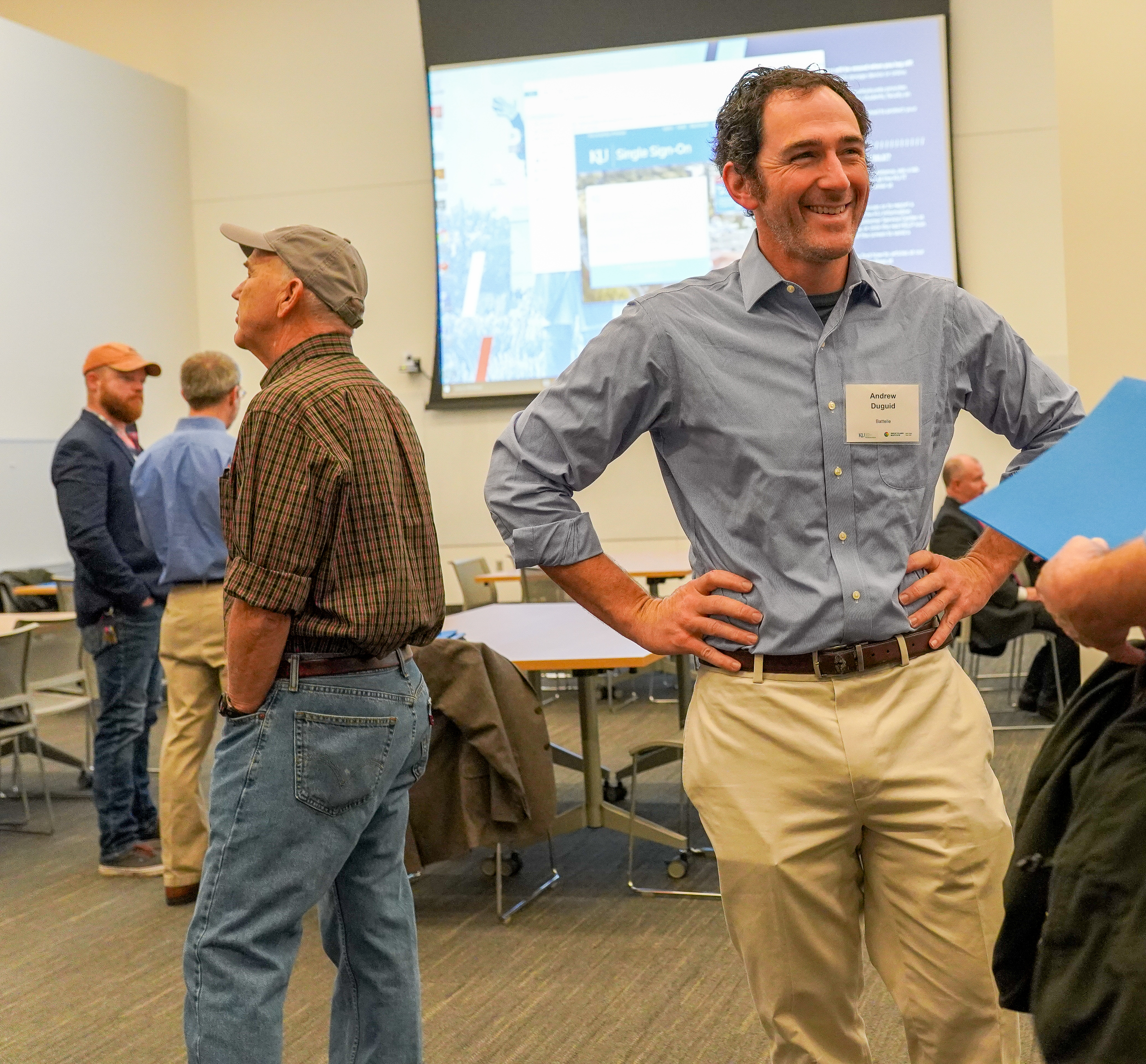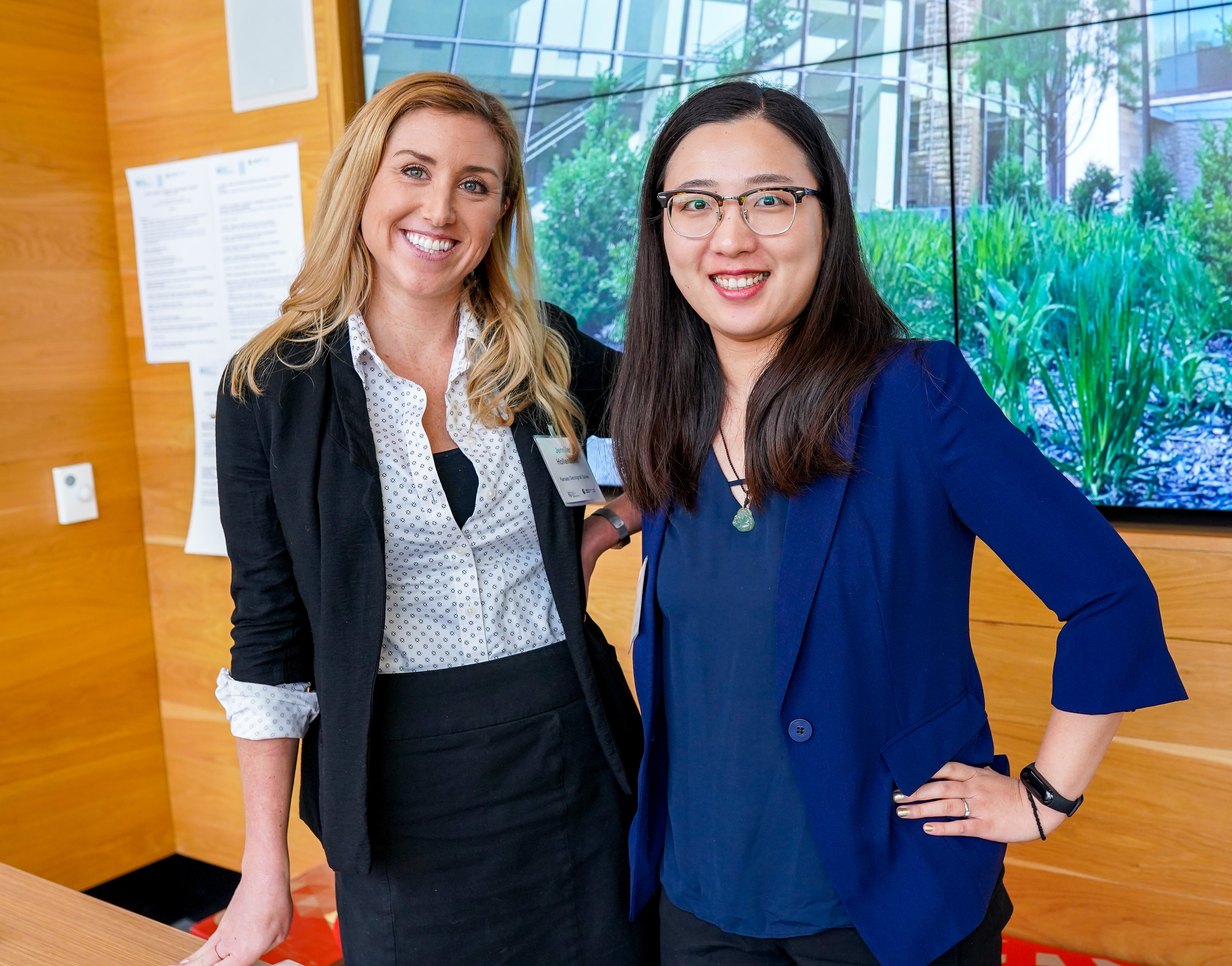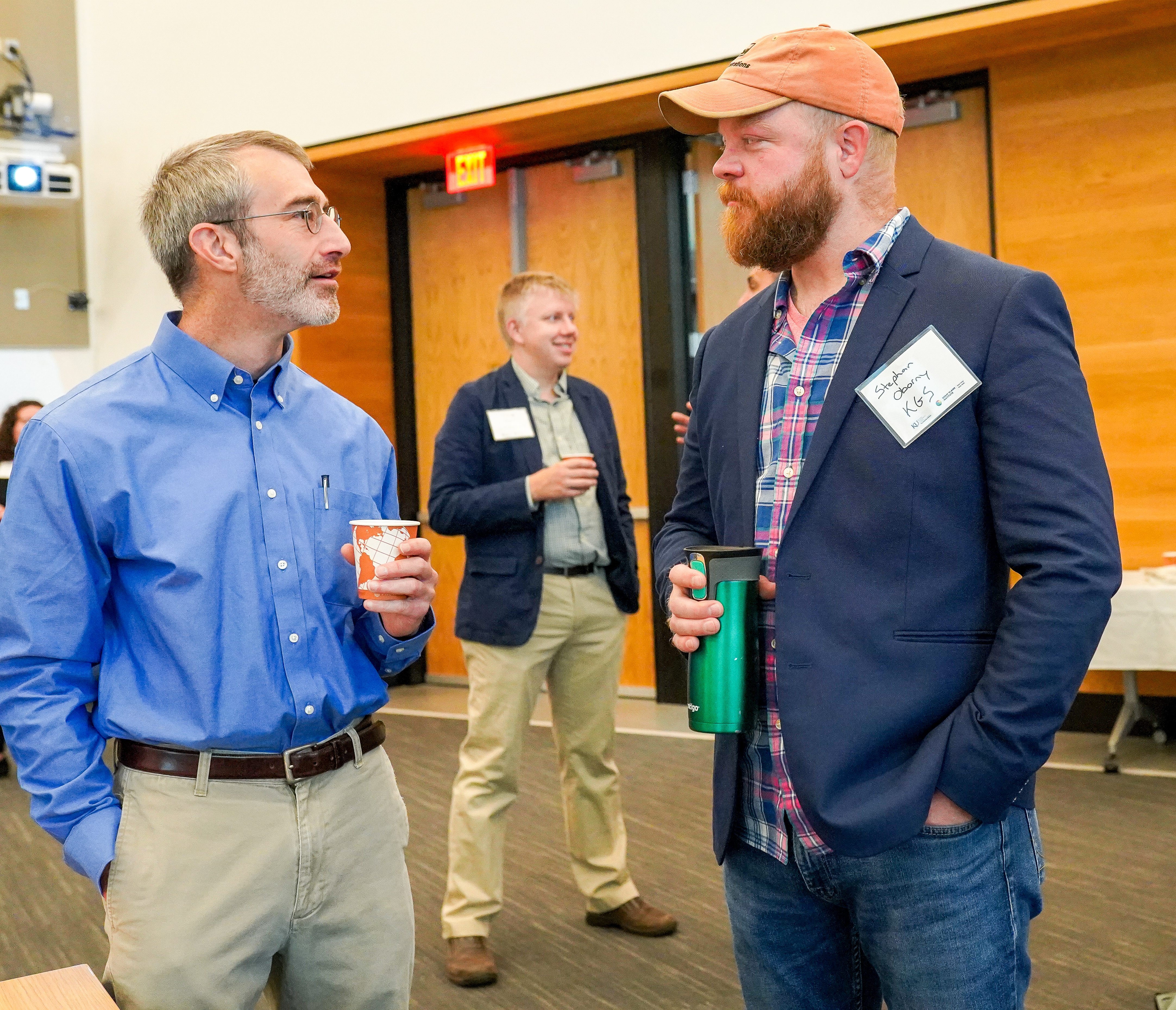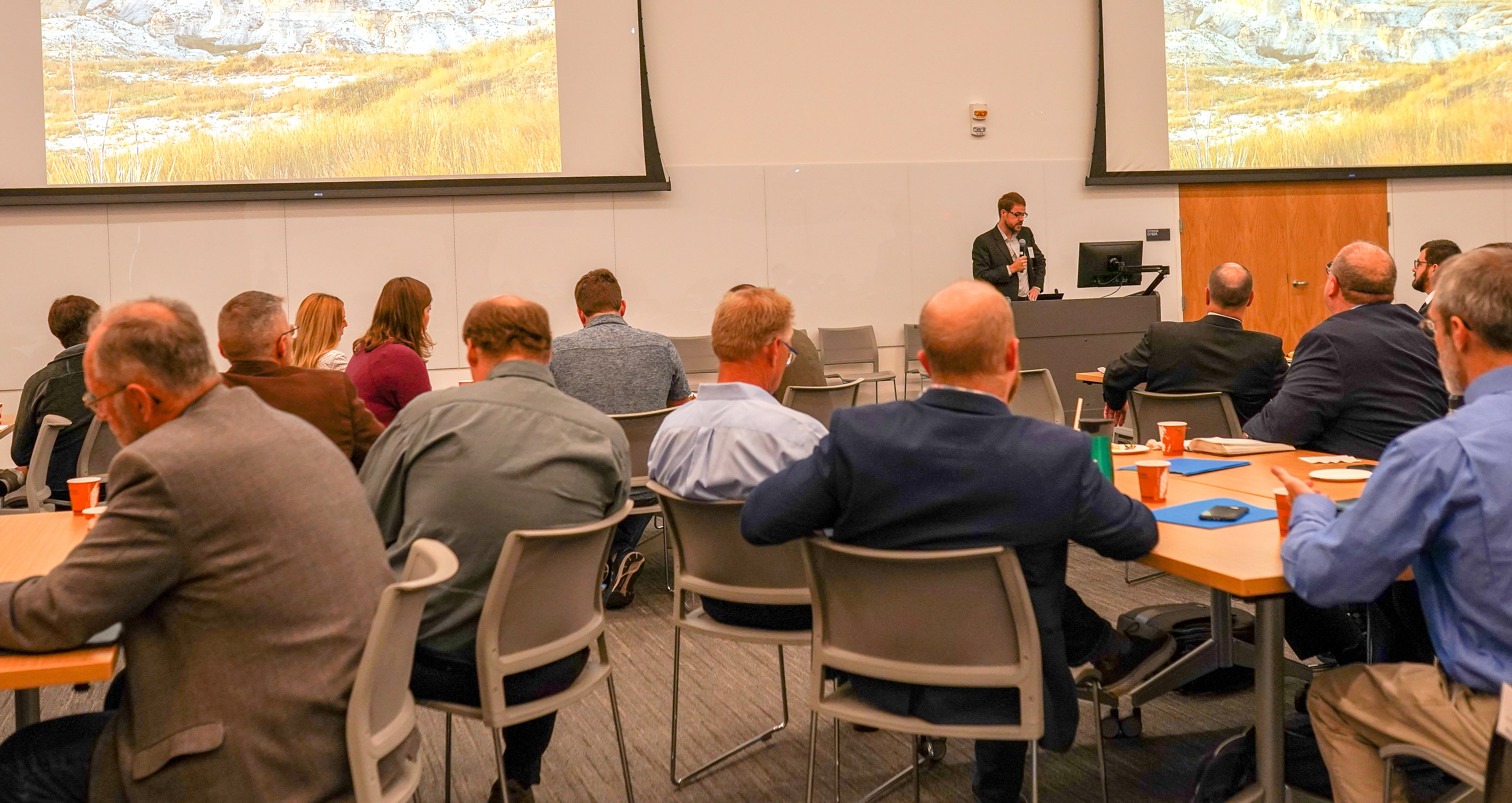Third "CCUS in Kansas" Conference
On October 15, 2019, Kansas Geological Survey (KGS) and the Regional Carbon Capture Deployment Initiative hosted its Third Carbon Capture Utilization and Storage in Kansas conference at the Beren Conference Center in the recently opened Earth Energy & Environment Center at the University of Kansas in Lawrence.
This year, more than seventy individuals from different industries and organizations participated in the annual event, including representatives from industry (e.g., power generation, ethanol, pipeline, oil and gas, waste management), regulatory and public policy organizations, governmental officials, and scientists involved in two U.S. Department of Energy (DOE)-funded Phase II CarbonSAFE projects. Jarad Daniels, DOE Director of Office of Strategic Planning and Global Engagement and Kurt Hildebrandt and other representatives from US Environmental Protection Agency Region 7 participated as well. Kansas government officials included State representative Jason Probst and former representatives David Heinemann and Tom Sloan. Officials from Kansas Department of Health and the Environment were in attendance as well.
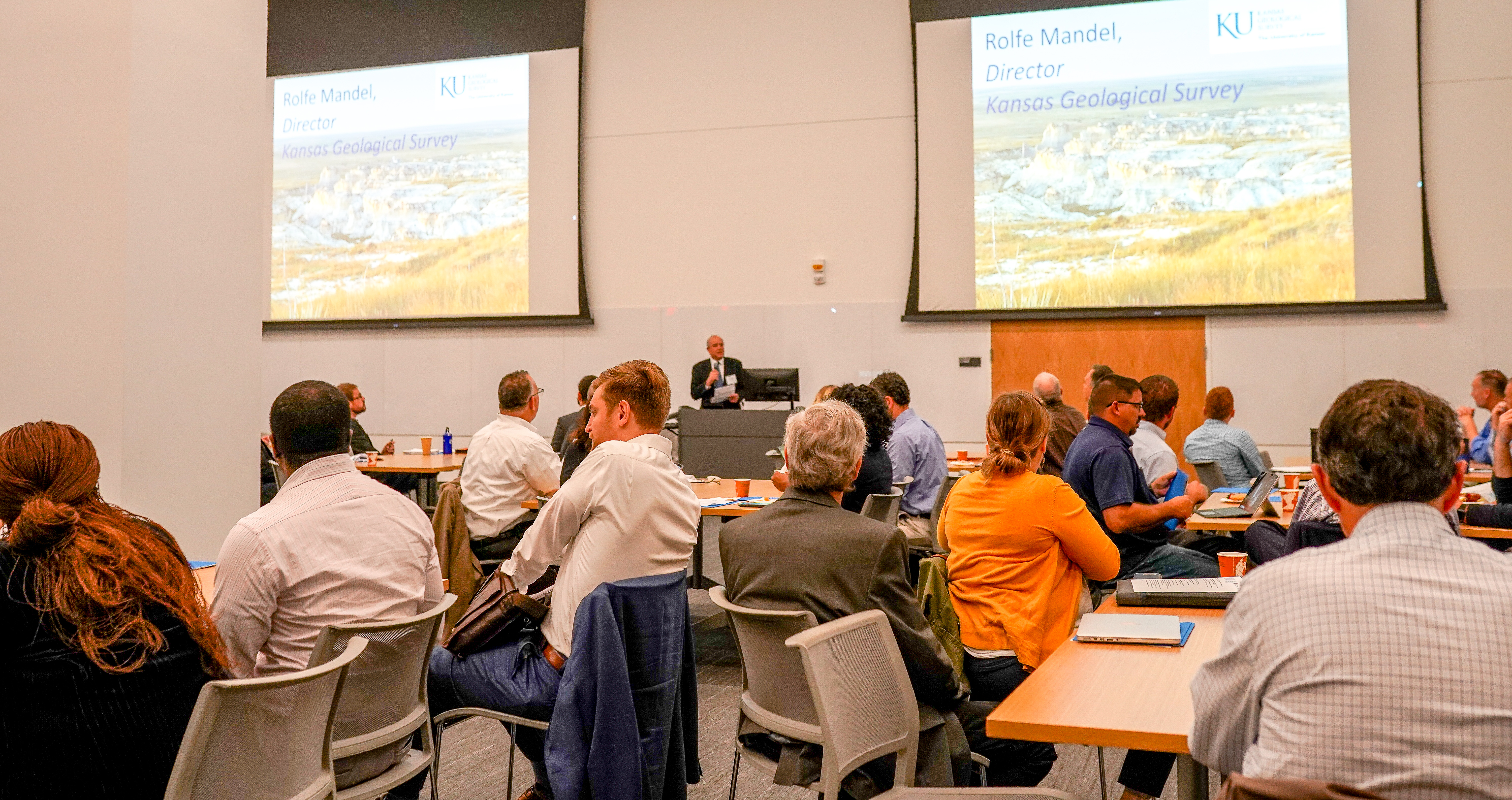
Rolfe Mandel, KGS Director, gives introductions and provides an overview of the CO2 research that has been ongoing at the Survey for the past 25 years.
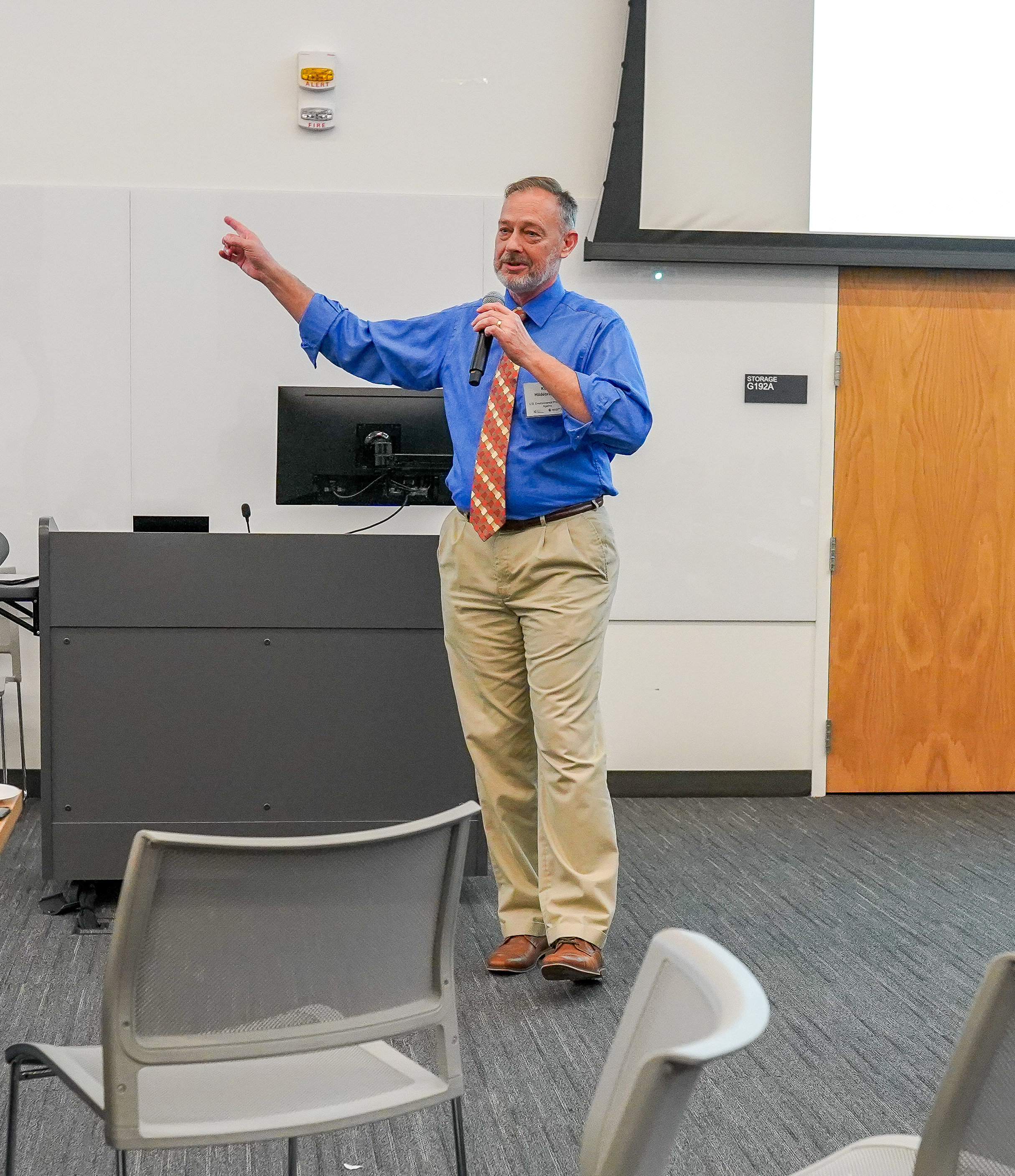
Kurt Hildebrandt, EPA Region 7 Director, provides an overview of Class VI permitting regulations. Hildebrandt and Region 7 worked closely with the Energy Research team on a successful Class VI application under DE-FE0006821.
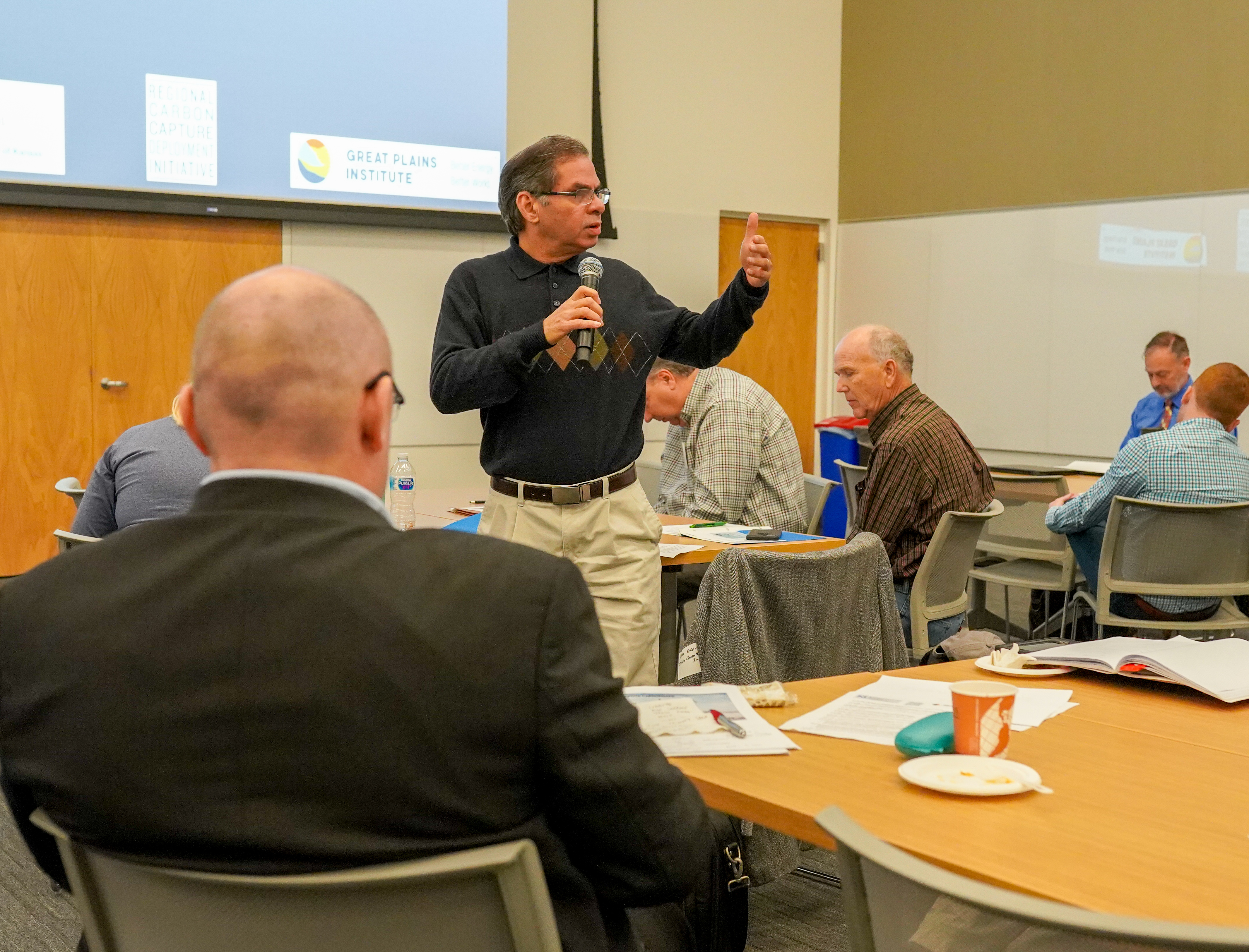
Tiraz Birdie asks a question to the group during the afternoon session. Birdie worked extensively on the Class VI permit application on the previous CO2 research project.
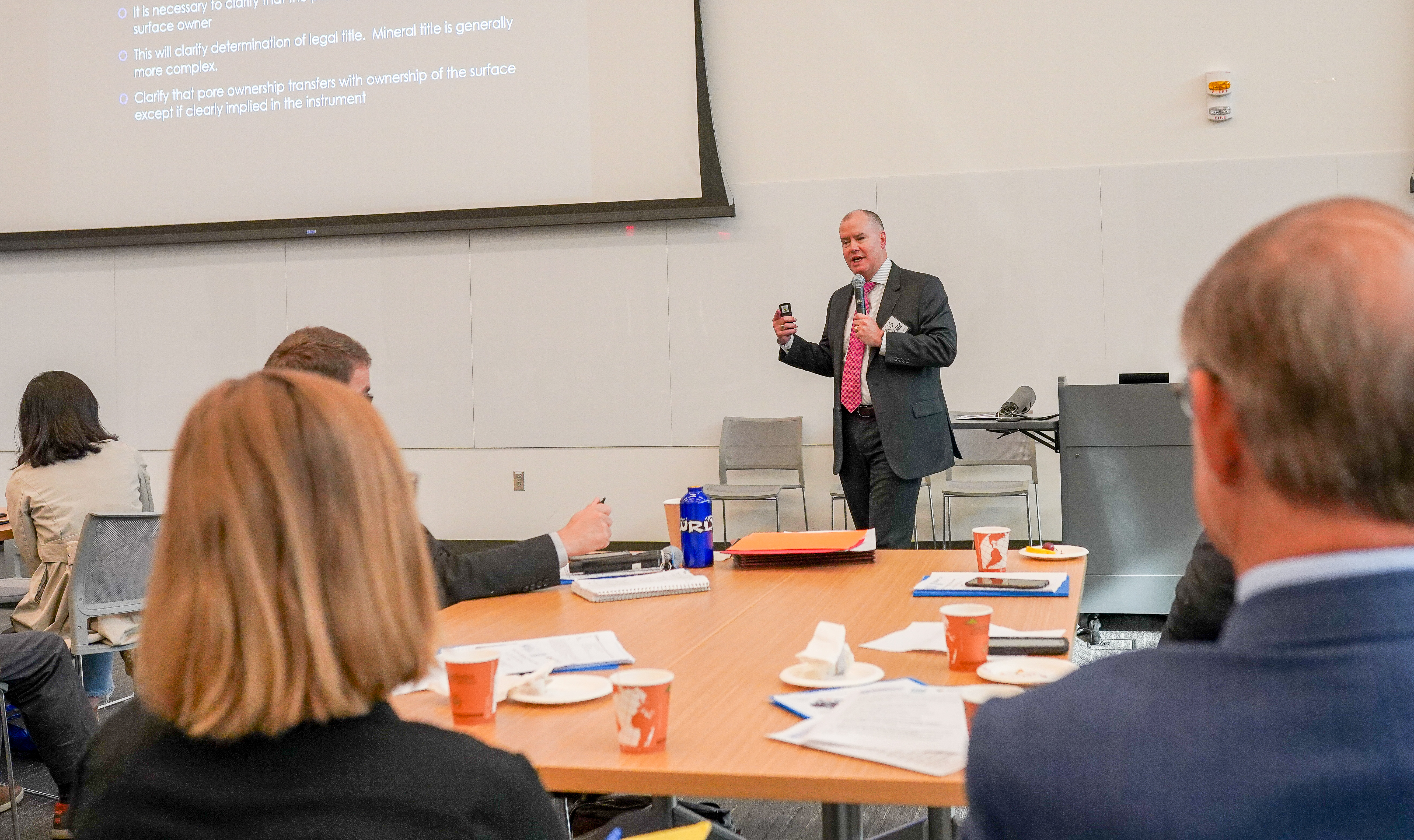
Chris Steincamp serves as the legal representative for the IMSCSH project. As an attorney and licensed professional geologist, Steincamp offers vast experience to guide legislation necessary to implement CCUS at a commercial scale in the state.
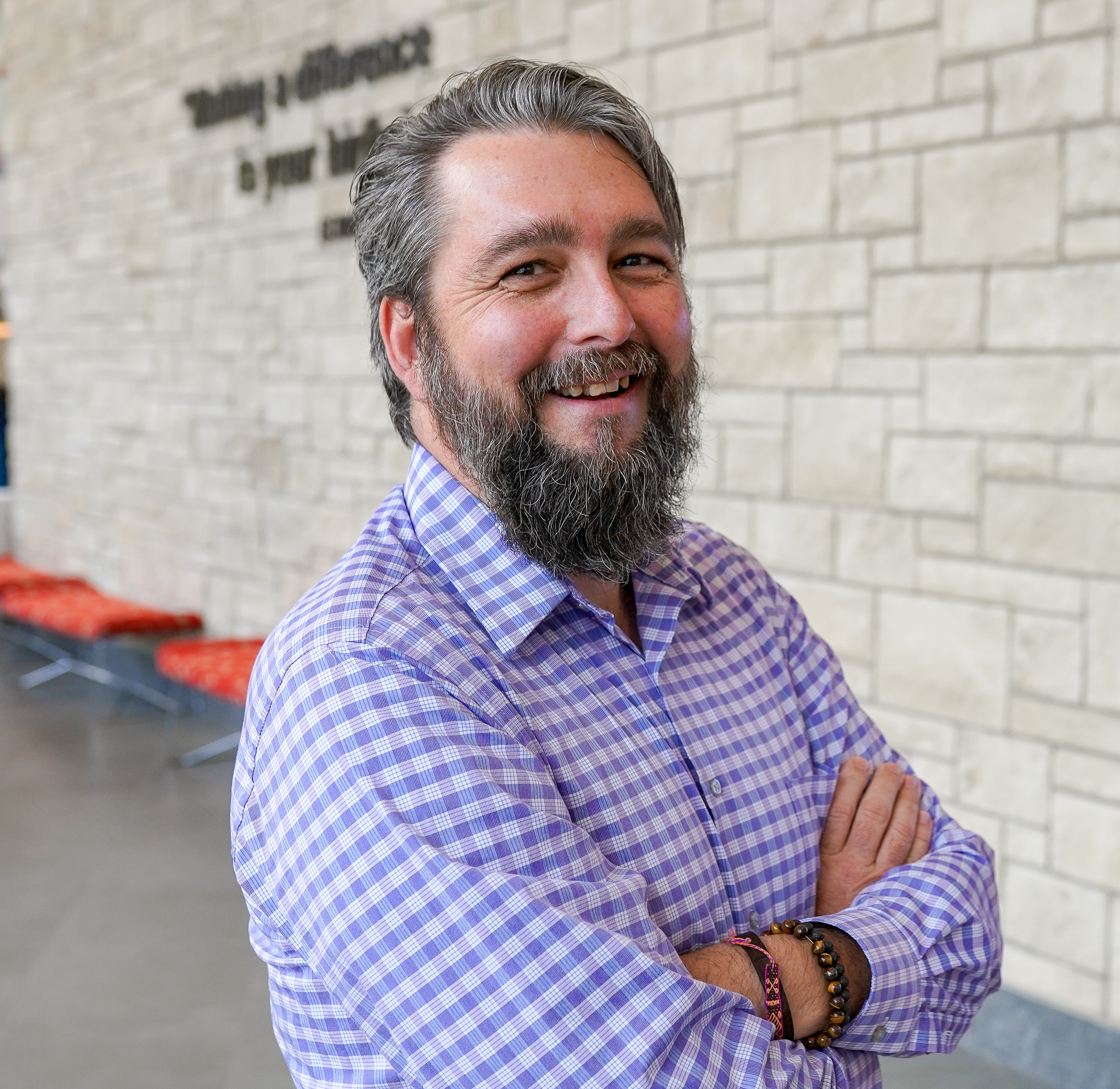
Jason Probst, a State of Kansas House Represenative, has shown his support for CCUS. He has provided his input to guide best practices and is helping with outreach in the state.
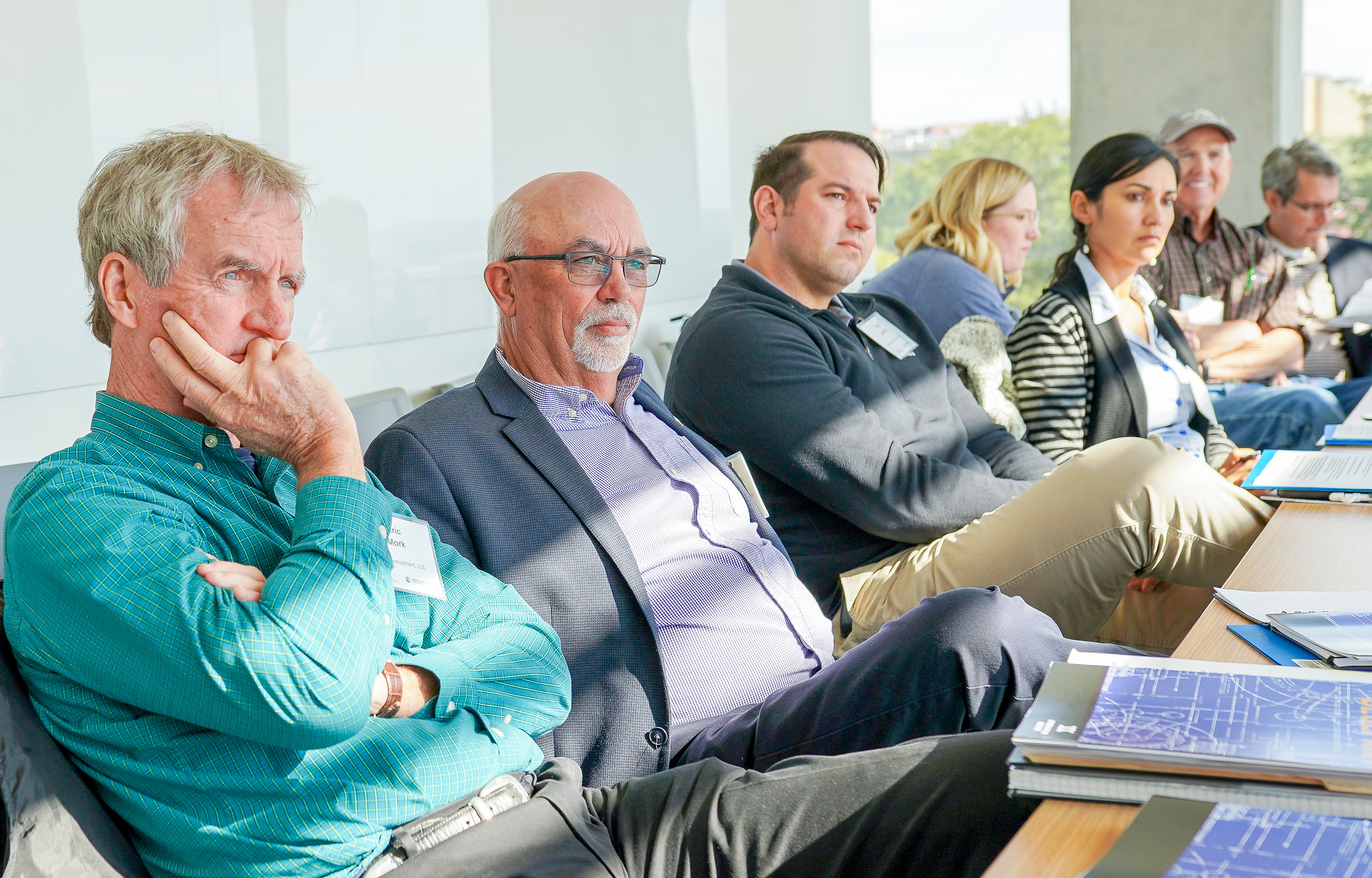
Attendees separated into 3 topic areas during the afternoon session. Participants focused on their primary area of interest, including; transportation, policy, and economics. Small group sessions enabled more discourse and direct sharing of ideas.
